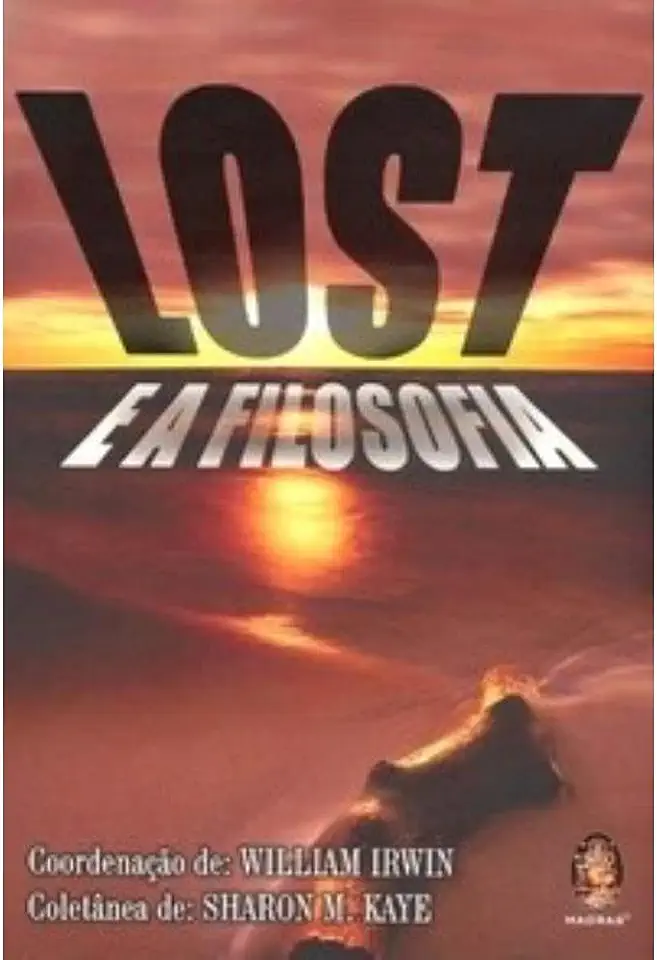
Lost and Philosophy - William Irwin
Lost and Philosophy: Exploring Existential Questions Through the Lens of the TV Show
A Journey of Self-Discovery and Profound Insights
In the realm of television, few shows have captured the hearts and minds of viewers like "Lost." With its intricate plotlines, enigmatic characters, and thought-provoking themes, "Lost" has become a cultural phenomenon that continues to inspire and intrigue audiences worldwide. But beyond the captivating storytelling, "Lost" also offers a unique opportunity to explore profound philosophical questions that resonate with our deepest human experiences.
In "Lost and Philosophy," William Irwin, a renowned philosopher and cultural critic, embarks on an intellectual adventure, delving into the philosophical depths of "Lost." Irwin masterfully weaves together the show's narrative with philosophical concepts, inviting readers to engage in a journey of self-discovery and profound insights.
Unraveling the Mysteries of Existence
"Lost" presents a microcosm of human existence, where characters grapple with universal questions of identity, purpose, and the nature of reality. Irwin uses these characters' struggles as a springboard to explore philosophical theories on consciousness, free will, and the existence of God.
Through the lens of "Lost," Irwin examines the concept of identity and the fluidity of the self. He draws parallels between the characters' shifting identities and philosophical notions of personal identity, such as the "divided self" and the "narrative self." These discussions invite readers to reflect on their own sense of self and the ways in which our identities are shaped by our experiences and relationships.
Confronting the Enigma of Time
Time plays a central role in "Lost," with its non-linear narrative and the characters' experiences of time travel. Irwin delves into the philosophical implications of time, drawing on theories from ancient Greek philosophers to modern physicists. He explores the nature of time, the possibility of alternate realities, and the relationship between time and consciousness.
These philosophical explorations challenge our conventional understanding of time and open up new perspectives on the nature of reality. Irwin's insights encourage readers to question their own assumptions about time and to consider the profound implications of temporal experiences.
Exploring the Boundaries of Free Will and Destiny
The characters in "Lost" often find themselves caught in a web of fate and free will, struggling to determine their own destiny. Irwin uses these struggles to explore the philosophical debate surrounding free will and determinism. He examines the role of chance and coincidence in our lives, as well as the extent to which our actions are shaped by external forces or our own choices.
These philosophical discussions invite readers to reflect on their own agency and the role of personal responsibility in shaping their lives. Irwin's analysis provides a deeper understanding of the complex interplay between free will and destiny, challenging readers to consider the nature of their own choices and the consequences that follow.
Transcending the Boundaries of Reality
"Lost" takes viewers on a journey that transcends the boundaries of reality, blurring the lines between the physical world and the metaphysical realm. Irwin explores these metaphysical elements through the lens of philosophical theories on consciousness, the nature of reality, and the existence of God.
He delves into the philosophical implications of the show's supernatural occurrences, such as the "Others," the "smoke monster," and the mysterious island itself. These discussions invite readers to question the nature of reality and the possibility of worlds beyond our own.
A Philosophical Odyssey for the Curious Mind
"Lost and Philosophy" is an intellectual feast for anyone seeking to explore the deeper meanings and philosophical underpinnings of one of the most influential television shows of our time. William Irwin's masterful analysis provides a unique perspective on "Lost," inviting readers to engage in philosophical inquiry and self-reflection.
Whether you're a fan of "Lost," a seeker of philosophical insights, or simply curious about the intersection of pop culture and philosophy, "Lost and Philosophy" is a must-read. Prepare to embark on a journey that will challenge your assumptions, expand your horizons, and leave you with a profound sense of wonder and understanding.